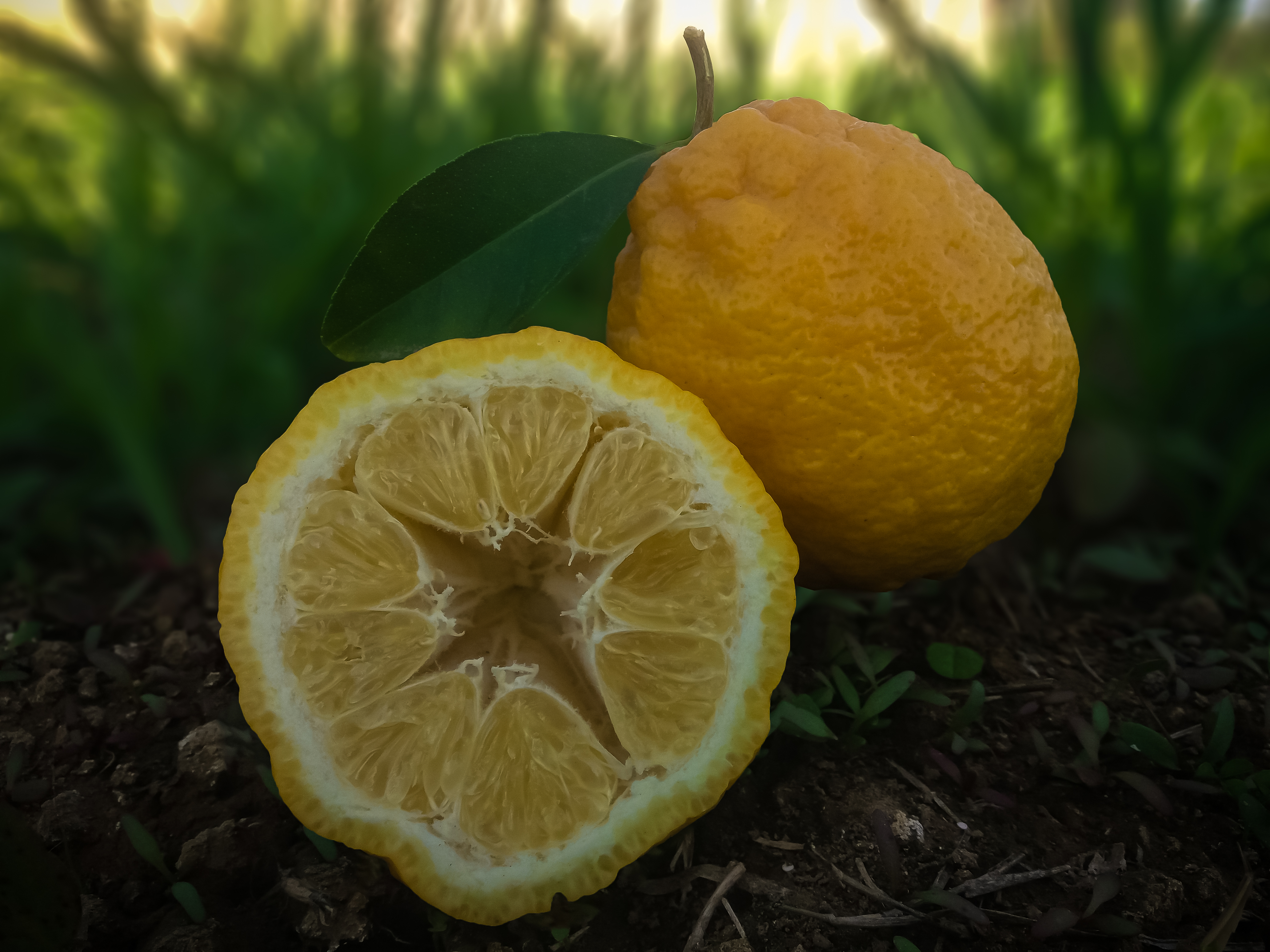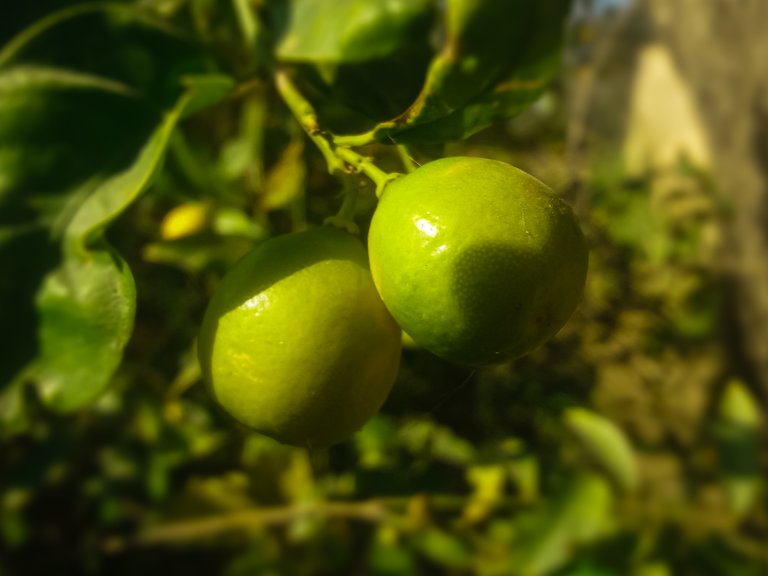The Multifaceted Benefits of Lemon: A Comprehensive Exploration
Title: The Multifaceted Benefits of Lemon: A Comprehensive Exploration
Lemons, with their vibrant yellow hue and tangy flavor, are not just a popular addition to culinary delights; they also boast a myriad of health and wellness benefits. Packed with essential nutrients and versatile applications, lemons have earned their status as a nutritional powerhouse. This article delves into the multifaceted advantages of lemons, covering aspects ranging from immune system support to skincare.
Heading 1: Nutrient-Rich Composition
Lemons are a rich source of essential nutrients, including vitamin C, potassium, and dietary fiber. The high vitamin C content, in particular, contributes to immune system health, aids in the absorption of iron, and possesses powerful antioxidant properties. Additionally, potassium is crucial for heart health and helps regulate blood pressure, while dietary fiber supports digestive health.
Heading 2: Immune System Support
One of the standout benefits of lemons is their unparalleled support for the immune system. The high concentration of vitamin C stimulates the production of white blood cells and antibodies, bolstering the body's defense mechanisms against infections and illnesses. Regular consumption of lemon can contribute to a robust immune system, reducing the risk of common colds and other ailments.
Heading 3: Alkalizing Properties
Despite their acidic taste, lemons have an alkalizing effect on the body, Maintaining a slightly alkaline pH is associated with various health benefits, including improved digestion, enhanced energy levels, and a reduced risk of chronic diseases. Lemons play a role in balancing the body's pH, promoting overall well-being.
Heading 4: Digestive Health and Weight Management
Lemon's natural acidity can stimulate the production of digestive juices, aiding in the digestion process. The combination of lemon and warm water is a popular morning ritual that may help kickstart metabolism and promote weight loss. Furthermore, the dietary fiber in lemons supports a healthy digestive system by preventing constipation and promoting regular bowel movements.
Heading 5: Skin Health and Beauty
Lemons are a beauty secret that has stood the test of time. The vitamin C in lemons promotes collagen synthesis, contributing to skin elasticity and wrinkle reduction. The citric acid in lemons also acts as a natural exfoliant, helping to brighten the skin and reduce the appearance of dark spots. Whether applied topically or consumed, lemons can enhance skin health, providing a radiant and youthful complexion.
Heading 6: Detoxification and Cleansing
Lemons are often associated with detoxification and cleansing due to their ability to support liver function. The liver plays a crucial role in removing toxins from the body, and the compounds in lemons aid in this detoxification process. Lemon water, in particular, is a popular choice for those looking to cleanse their system and support overall liver health.
Heading 7: Oral Health Benefits
The antibacterial properties of lemons contribute to improved oral health. Lemon juice, when diluted, can be used as a natural mouthwash, helping to combat bacteria that cause bad breath. Additionally, the vitamin C content in lemons promotes gum health and may contribute to the prevention of conditions like gingivitis.
Heading 8: Heart Health and Blood Pressure Regulation
Potassium, a vital mineral found in lemons, plays a key role in heart health. Adequate potassium intake is associated with lower blood pressure, reducing the risk of cardiovascular diseases. Incorporating lemons into a heart-healthy diet may contribute to overall cardiovascular well-being.
Heading 9: Anti-Inflammatory Effects
Chronic inflammation is linked to various health issues, including arthritis and cardiovascular diseases. Lemons contain compounds with anti-inflammatory properties, which may help alleviate inflammation and contribute to the prevention of inflammatory conditions. Including lemons in a balanced diet can be a proactive step in managing inflammation and promoting long-term health.
Heading 10: Versatility in Culinary Applications
Beyond their health benefits, lemons add a burst of flavor and versatility to a wide range of culinary creations. From enhancing the taste of savory dishes to being a key ingredient in desserts and beverages, lemons are a kitchen staple. The zest, juice, and even the peel of lemons can be used to elevate the culinary experience, making healthy eating enjoyable.
Conclusion:
In conclusion, lemons are much more than a simple citrus fruit; they are a treasure trove of health and wellness benefits. From bolstering the immune system and promoting digestive health to enhancing skin radiance and supporting heart health, lemons have earned their reputation as a superfood. Whether enjoyed in culinary creations or incorporated into daily health rituals, the advantages of lemons are diverse and far-reaching. Embracing the power of lemons can be a delicious and nutritious way to enhance overall well-being.

Incorporating lemons into your daily routine is a simple and enjoyable way to harness their numerous health benefits. Here are several ways you can use lemons every day:
Morning Lemon Water:
- Start your day with a glass of warm water infused with the juice of half a lemon. This helps kickstart your metabolism, aids digestion, and provides a boost of vitamin C to support your immune system.
Citrusy Salad Dressing:
- Make a refreshing salad dressing by combining lemon juice, olive oil, a touch of honey, and your favorite herbs. Drizzle it over salads for a zesty and healthy flavor.
Lemon in Tea or Water:
- Add a slice of lemon to your tea or water for a burst of flavor. This not only enhances the taste but also provides additional vitamin C and antioxidants.
Lemon Infused Detox Water:
- Create a detoxifying beverage by infusing water with lemon slices, cucumber, and mint. This not only adds flavor but also promotes hydration and detoxification.
Lemon as a Cooking Ingredient:
- Incorporate lemon zest, juice, or slices into your cooking. It adds brightness to dishes, enhances flavors, and can be used in both savory and sweet recipes.
Lemon for Grilled or Roasted Veggies:
- Squeeze fresh lemon juice over grilled or roasted vegetables. The acidity of lemons enhances the taste and adds a healthy twist to your side dishes.
Lemon in Smoothies:
- Boost the nutritional content of your morning smoothie by adding a splash of lemon juice. It pairs well with various fruits and greens, providing a tangy kick.
Lemon-Flavored Yogurt:
- Mix lemon zest or juice into your yogurt for a citrusy twist. Add a drizzle of honey and some berries for a delicious and nutritious snack.
Lemon Ice Cubes:
- Freeze lemon juice in ice cube trays and add the cubes to your water or iced tea. This keeps your drink cool while infusing it with a hint of lemon flavor.
Lemon in Seafood Dishes:
- Enhance the flavor of fish and seafood by squeezing fresh lemon juice over them. The acidity complements the richness of the seafood.
Lemon in Desserts:
- Use lemon zest or juice in baking to add a bright and citrusy flavor to cakes, cookies, and other desserts. Lemon pairs well with a variety of sweet treats.
Lemon-Infused Cooking Water:
- When boiling pasta or rice, add a slice of lemon to the cooking water. This infuses a subtle citrus flavor into the grains.
Lemon in Cocktails and Mocktails:
- Create refreshing beverages by incorporating lemon juice into cocktails or mocktails. The tartness of lemons can elevate the taste of your favorite drinks.
Lemon for Cleaning:
- Mix lemon juice with water to create a natural cleaning solution, The acidity of lemons helps break down stains, and their fresh scent provides a natural deodorizer.
Lemon for Skin Care:
- Combine lemon juice with honey for a DIY face mask or mix it with sugar for a natural exfoliant. The vitamin C in lemons promotes skin health and a radiant complexion.
By incorporating lemons into various aspects of your daily routine, you can enjoy their diverse benefits while adding a delicious and healthy twist to your meals and beverages.

Lemons come in various types, each with its unique characteristics in terms of flavor, size, and usage. Here are some common types of lemons:
Eureka Lemon:
- The Eureka lemon is one of the most common types found in grocery stores. It has a bright yellow color, a tart flavor, and is typically medium to large in size. Eureka lemons are known for their high juice content.
Lisbon Lemon:
- Similar to the Eureka lemon, the Lisbon lemon is another widely available variety, It has a vibrant yellow color, a tangy taste, and is commonly used for both culinary and household purposes. Lisbon lemons are often nearly seedless.
Meyer Lemon:
- Meyer lemons are a sweeter and less acidic variety known for their thin, smooth, and deep yellow to orange skin, They are thought to be a cross between a lemon and a mandarin or orange,, Meyer lemons are often used in both sweet and savory dishes,,
Ponderosa Lemon:
- Ponderosa lemons are large, thick-skinned lemons with a mild flavor. They are less acidic than Eureka or Lisbon lemons and are often used for ornamental purposes due to their size.
Variegated Pink Lemon:
- This unique lemon variety is known for its pink-striped yellow skin and pink-fleshed interior. The Variegated Pink Lemon has a tart flavor and is often used for decorative purposes, as well as in culinary applications.
Femminello St. Teresa (Sorrento) Lemon:
- Originating from Italy, the Sorrento lemon is a popular lemon variety used in the production of limoncello, a traditional Italian lemon liqueur. It has a bright yellow color and a fragrant, flavorful juice.
Yen Ben Lemon:
- Yen Ben lemons are medium-sized with a smooth, thin skin. They are known for their juicy, acidic, and tangy flavor. This lemon variety is commonly used in cooking and baking.
Verna Lemon:
- Verna lemons are a Spanish variety known for their high juice content and bright yellow color. They are available in the late winter and early spring, making them a popular choice during that season.
Citron Lemon:
- Citron lemons are larger than traditional lemons, with a thick, bumpy skin and minimal juice. They are primarily used for their aromatic zest and are often candied or used in preserves.
Ezilite Lemon:
- The Ezilite lemon is a cold-resistant variety with a distinct, sweet flavor. It is smaller than the Eureka or Lisbon lemons and is often grown in cooler climates.
Lemonade Lemon:
- This variety, as the name suggests, is often used to make lemonade. It has a good balance of sweetness and tartness, making it a popular choice for refreshing beverages.
These lemon varieties offer a spectrum of flavors and characteristics, allowing for diverse culinary applications and preferences. Whether you're looking for a zesty kick in your recipes or a sweeter note in your beverages, there's a lemon variety to suit your taste.


Thank you so much for reading my blog. Hope you like this blog of mine.
